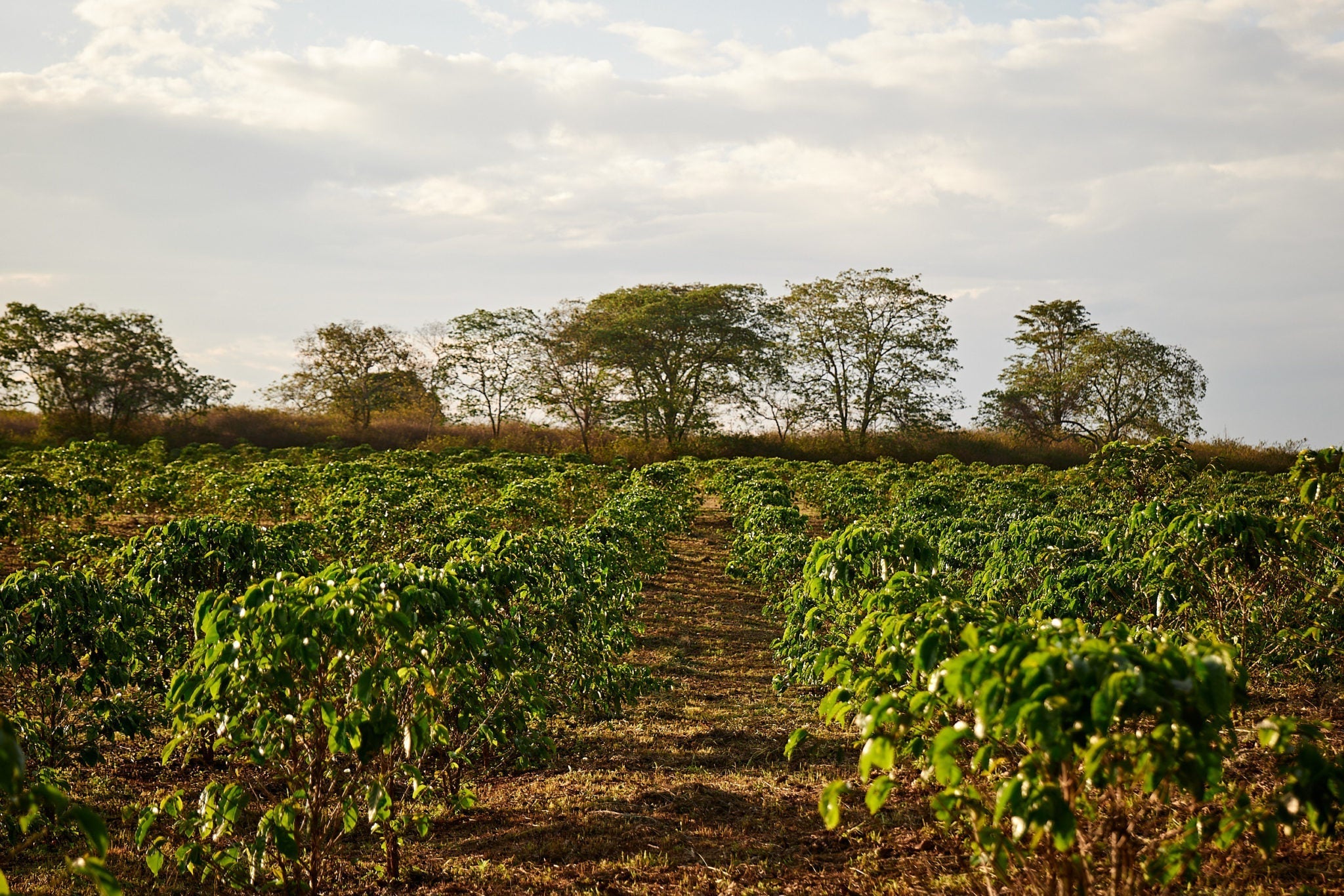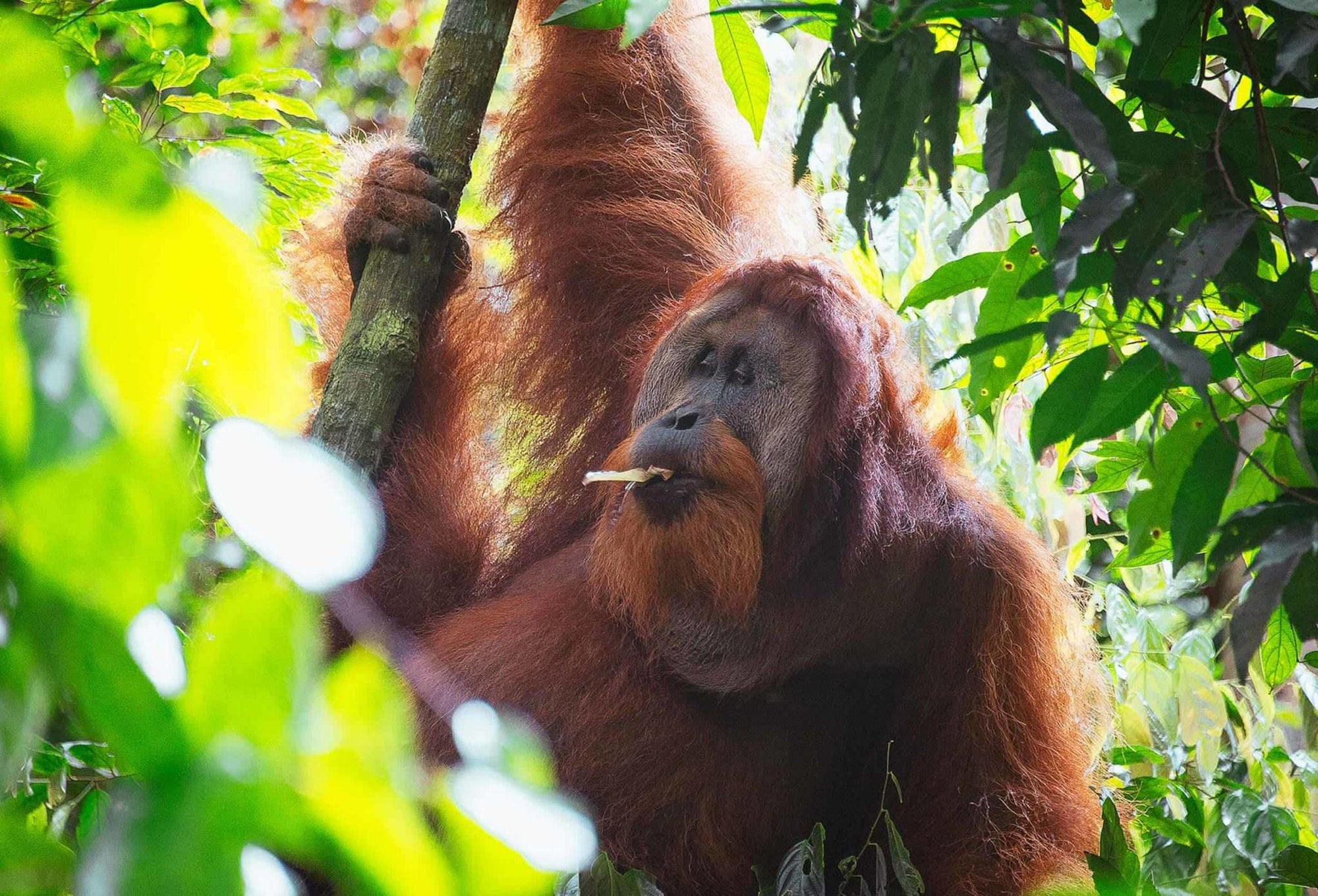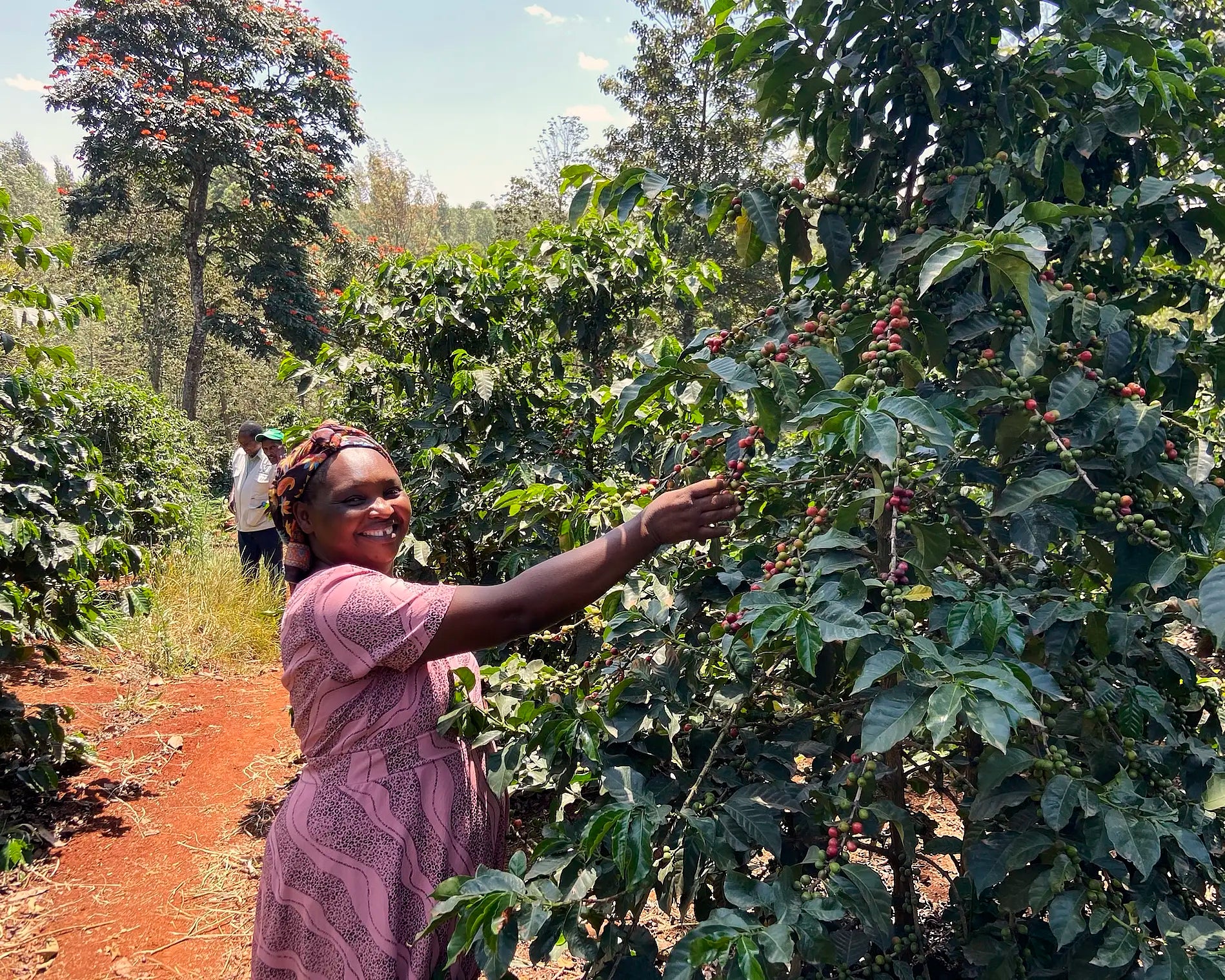
While it is autumn in Switzerland, we fly to the summer in East Africa. We want to get an idea of the local conditions and developments and are searching for a new partner farm. It is our first origin trip since the beginning of the Covid19 pandemic and we are heading to Kenya - just in time for the main harvest season.
We start our trip in the north of Nairobi, in the hills of Kiambu County. We are accompanied by Cyprian, who works for the Kenyan coffee export company Taylor Winch as sustainability manager. Among other things, we visit various smaller estates, which he looks after in his function as manager of Volcafe Way.
Volcafe Way supports the farms in financial management by trying to reduce production costs and at the same time increase the productivity of the farms and the quality of the coffee. This is to ensure that coffee cultivation provides a sustainable livelihood for the farmers.
We start early in the morning with a visit to Kiriga Estate. Originally this was run by two owners who later decided to divide it into three sister farms (Kiriga, Githaka & Mibando) which are now run by their descendants. Here we get our first glimpse of Kenyan coffee culture and the various steps from cultivation to processing.


A little more rested, we set off on the second day to the farm of Daniel Kamiri Njoroge. Together with his son Alfons and his wife, who is introduced to us as deputy, they run this beautiful little paradise surrounded by lush green forests. Full of passion the small family shows us how they graft Ruiru 11 on the old durable SL28 and SL34 stumps and how they use the gas of the farm's own cow dung with the help of a small biogas plant in the kitchen. We walk past the farm's own nursery and through the healthy, well-stocked coffee trees, which grow and thrive amidst beans, tomatoes, avocados and more. While his son builds up his own tilapia fish breeding on the farm and his wife fights against violence against girls as a so-called "champion" in the organization "GROOTS Kenya", Daniel dreams of leaving his children a better farm, roasting his own beans and selling the coffee locally. With his ambitious plans, he is following in his grandfather's footsteps. The freedom fighter and founder of the farm also gave it its beautiful name: Ciumenene ("hope for a good harvest").
But also other farms fascinate and touch us. The Gichuka Estate is run by Rosemary. While she is assisted by her father George and two fearsome dogs, she is also the first woman we have met in this role. She is full of pride to be able to take over the farm from her father and would love to make her name known all over the world. The Muiri Estate is completely organic since 1999 and is the only certified farm in Kenya.


On day 3 we meet Jack, managing director of Taylor Winch.
He takes the role of Cyprian and leads us to the jointly managed Chania and Oreti Estates. The estates are managed by Boyce Harries and are the last two remaining farms of this size that are still owned and operated by the original owning family. The Harries family has been in the Chania River area for over 100 years. Meanwhile, the fate of the farm is managed in the 5th generation by Boyce, who has been in the family business since 2004.
In conversation with him, one immediately senses his passion for coffee and that he benefits from the immense know-how that has been accumulated on the farms over the past decades. His curiosity and willingness to experiment, whether with special processing methods or the cultivation of exotic varieties in the in-house nursery, is impressive. He is currently preparing to become a Q-grader and would like to learn how to roast his own coffee. Boyce also has big plans for his farm - one day he would like to run his own drymill on the premises and thus have the entire processing process in his hands. On our foray through the lush fields of the farms, we encounter a wide range of varieties. Besides the well-known SL 28, SL 34 and Ruiru 11, we find K7 and French Mission, one of the original varieties of East Africa. The single-varietal blocks extend from the namesake Chania River along the Aberdare Ridge to the Oreti Estate. Oreti is M?oric and means "a place of danger and rugged beauty". In the meantime, it is no longer dangerous here, but the rough beauty of the almost endless coffee fields has cast a spell on us.

With all the impressions we have gained on the farms, we follow the coffee value chain to the Sasini Dry Mill, run by David J. Murunga. In their impressive halls, they receive the coffee from the farms, remove parchment, sort by quality, remove any remaining impurities from the beans and take over the storage of the green coffee during the auction until the final delivery and shipment.
Finally, our way leads us to the office of Taylor Winch to cup the coffees of the visited farms together with Jack. On the one hand we are looking for an excellent cup profile, on the other hand it is essential for us that the future partner farm shares our values and visions. In the first round, we taste all the coffees individually and give an objective assessment of their quality - in the second round, it's down to the nitty-gritty: since we are looking for a new supplier for our house blend, each coffee has to prove itself in a blend with the other components. At the end of the second cupping, two farms convinced us with their special cup profile and we are happy to have made a successful selection. Together we will now exchange ideas, share our values and visions and of course negotiate in the coming weeks, so that hopefully a new long-term partnership will emerge.
With a critical amount of caffeine in our blood, we say goodbye to Kenya and embark on the next part of our journey to Tanzania.

Text: Sarah Ackermann, Felix Goelzer Pictures: Aaron Fee



